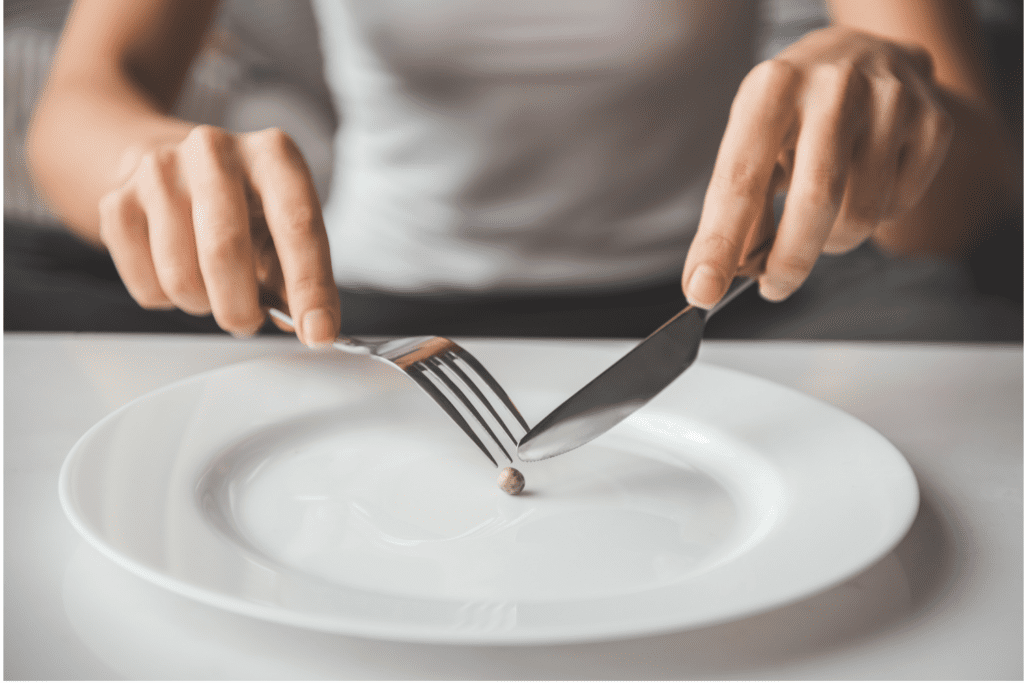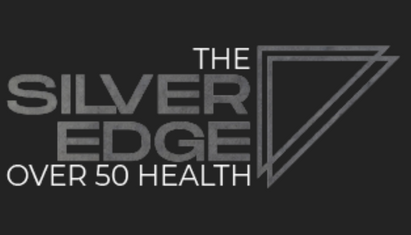
Let’s face it, losing weight is hard. No one likes the feeling of constantly being hungry or being denied foods they truly love. But the fact remains, to lose weight we need to be in a calorie deficit – that is we need to eat fewer calories than we expend. But as anyone who has ever gone on a can attest, that is much easier said than done.
If you’ve tried dieting unsuccessfully in the past, then take heart – help is on the way! Below are my top tips for reducing hunger while you’re dieting. Keep in mind that this advice assumes that your weight loss goals are reasonable, no “crash” diets or 6-day juice detox cleanses please! Follow the tips below to help you feel full, even when you’re in a calorie deficit.
Don’t Drink Calories
Except for water (you should be drinking lots of water every day!) and maybe black coffee and tea, avoid drinking calories while dieting. Be especially mindful of sugary drinks such as sodas and fruit juices as these often contain quite a few calories and do nothing to satiate hunger. The other big offender in this space is alcohol. Most of us know that alcohol doesn’t provide any helpful nutrition (but plenty of calories), and in addition drinking disrupts our sleep (more on that below) and can adversely affect our nutritional decision making. I mean let’s be real here, who has a few drinks and gets a craving for kale? No one. But we sure can dig into some cheesy nachos or a deep-dish pizza. Similarly, what hungover person has ever woke up craving egg whites with spinach? Not a single person. Ever. But we’ll certainly tear into that bacon egg and cheese biscuit, and yes please to the hash rounds!
Prioritize Protein
Studies show that up to one third of older adults do not eat an adequate amount of protein. Protein consumption reduces your level of the hunger hormone ghrelin, while simultaneously boosting levels of the hormone peptine YY which makes you feel full. This means that you feel fuller, which leads to consuming fewer calories (which is how we lose weight after all!). Also, your body actually burns more calories digesting and metabolizing proteins; about 25% of protein calories are burned simply in the digestion process. Similarly, a high intake of protein has been shown to increase your metabolism, which in turn burns more calories throughout your day.
Eat Mindfully
Eating mindfully simply means slowing down and bringing awareness to your meals. Savor your food’s aroma; as you chew notice and appreciate the smell, taste, and texture. Practice putting your fork or spoon down after every bite. Eating slowly and mindfully gives the stomach time to signal the brain that we’re full (which is short-circuited when we quickly wolf our food down). Try incorporating this tip into your lifestyle, and you’ll find that meals are more enjoyable and weight loss a bit more attainable.
Avoid Highly Processed Foods
There’s a reason why cinnamon buns, pop tarts, breakfast cereal, boxed macaroni and cheese, and potato chips taste so delicious – they were designed to. As in designed by food scientists who are not designing these franken-foods for optimal nutrition, but rather are designing foods in labs that are hyper-palatable. And these food companies (who the food scientists are working for) are doing this for one very simple reason; they want you to buy more of their heavily processed foods (primarily to appease their stock holders). And one way to get you to buy more is by designing foods that are hyper-palatable but are not filling. Think about it, if these companies made nutritious foods that that left you feeling full, you’d buy less. Strive to look for ways to begin replacing processed foods in your meals and snacks with healthy whole foods. You’ll be considerably healthier, and you feel fuller longer.
Eat Fiber Rich Foods
Fiber rich foods are high-volume foods that take longer to digest, making you feel fuller longer. This usually comes with the added benefit of a healthy dose of micronutrients (vitamins and minerals). In addition, fiber stays in the stomach longer than other foods, meaning that feeling of fullness will stay with you much longer. Vegetables, fruit and whole grains are all low calorie/high fiber foods that are ideal for keeping you full while dieting.
Sleep
Sleep is one of the most overlooked aspects of sustainable weight loss (and muscle building). The Center for Disease Control reports that 30% of adults don’t get enough sleep. Getting quality sleep can help us: lose fat, gain muscle, regulate blood sugar and hormones, as well as regulate our hunger, appetite and satiety… and the opposite happens when we don’t get enough sleep. Specifically sleep suppresses hunger and signals fullness in the brain. When you don’t get enough sleep, your body makes more ghrelin and less leptin, which is a sure-fire way to leave you hungry and increase your appetite.
The gold standard is eight hours of sleep each night. The internet is full of resources for improving sleep (just Google “sleep hygiene” or “pre-sleep ritual”), but here are a few of my favorite tips:
- Turn off electronics an hour before bed. If you absolutely can’t do this, consider wearing blue-blocking glasses while viewing these devices.
- Try going to bed at the same time every night.
- Keep your bedroom cool and dark while you sleep.
- Have a pre-sleep ritual. Many people find that a short prayer/meditation/gratitude practice is helpful for winding down from the day and improving sleep.
Everybody knows that wonderful feeling of waking up refreshed and ready to take on the world after a great night’s sleep… and we all know the crappy feeling of lethargy (and weak willpower) from a lousy night of sleep.
Hopefully these tips help you on your weight loss journey. I’d love to hear your ideas. What has – of hasn’t – worked for you?
